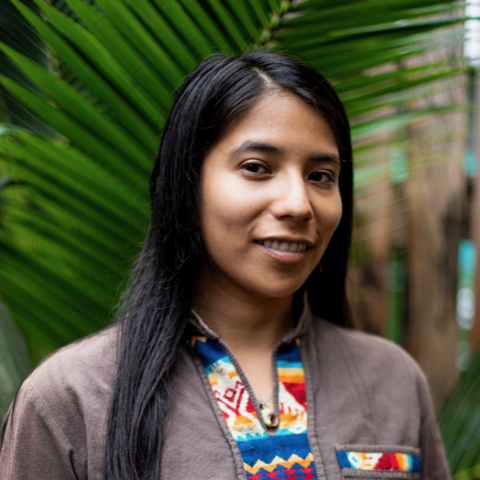 In a world where “doing good” has become a marketable commodity, an ESG metric, or an acceptable defense against valid criticism, nonprofit leaders must take time to reflect on the role we play in the Nonprofit Industrial Complex (NPIC).
In a world where “doing good” has become a marketable commodity, an ESG metric, or an acceptable defense against valid criticism, nonprofit leaders must take time to reflect on the role we play in the Nonprofit Industrial Complex (NPIC).
Navigating complex partnerships: Or why I talk to prison staff the same way I talk to corporate donors
 What do you do if it seems like your funder or prospective partner is inherently opposed to your approach to meeting your mission?
What do you do if it seems like your funder or prospective partner is inherently opposed to your approach to meeting your mission?
The ultimate equity test: Reliance on unpaid labor
 Among the most egregious practices that cause nonprofit organizations to fail the equity test is a reliance on unpaid labor. What’s even more concerning is that this is most common among professional development organizations.
Among the most egregious practices that cause nonprofit organizations to fail the equity test is a reliance on unpaid labor. What’s even more concerning is that this is most common among professional development organizations.
Four insights and five key steps for more equitable nonprofit governance
 Those of us who work closely with nonprofit boards or serve on boards know that a high percentage of boards are not working. And the challenges in terms of the stresses that boards are experiencing (racial injustice, inequities, workplace burnout, uncertainty in the larger economic environment) have increased over the past few years.
Those of us who work closely with nonprofit boards or serve on boards know that a high percentage of boards are not working. And the challenges in terms of the stresses that boards are experiencing (racial injustice, inequities, workplace burnout, uncertainty in the larger economic environment) have increased over the past few years.
What the mini-series Secret Invasion can teach us about allyship and restoration when we’ve caused harm
 Let’s dig into what Secret Invasion has to teach us about allyship journeys, building bridges and navigating internal community dynamics, and potential paths to restoration when you’ve done harm as an ally.
Let’s dig into what Secret Invasion has to teach us about allyship journeys, building bridges and navigating internal community dynamics, and potential paths to restoration when you’ve done harm as an ally.
Harnessing the Law of Oneness for Community-Centric Fundraising
 The Law of Oneness can be applied to all the principles of CCF. I welcome you to journal, sing, draw, meditate, or otherwise reflect on your own about each of the principles and how you are one with them (as well as everyone else who is applying them or not to this collective work).
The Law of Oneness can be applied to all the principles of CCF. I welcome you to journal, sing, draw, meditate, or otherwise reflect on your own about each of the principles and how you are one with them (as well as everyone else who is applying them or not to this collective work).
No more silence: Suicide and nonprofit staff
 There is something oddly cyclical about experiencing trauma, starting a nonprofit to mitigate trauma, and asking people to work at a nonprofit exposing them to trauma.
There is something oddly cyclical about experiencing trauma, starting a nonprofit to mitigate trauma, and asking people to work at a nonprofit exposing them to trauma.
What charity runs can accomplish: Why I’m running 26 miles alongside my dad to support a suicide helpline
 While I cannot go back in time and change the past, I can help to prevent this terrible loss from happening to others. If running the marathon saves just one life, then it would have been more than worth it.
While I cannot go back in time and change the past, I can help to prevent this terrible loss from happening to others. If running the marathon saves just one life, then it would have been more than worth it.
How our liberation and joy are being hijacked by the LGBTQ+ nonprofit sector
 …performative displays have been demonstrated by well-funded mainstream LGBTQ+ nonprofits in metropolitan cities across the U.S. that have historically been founded by white, cis, upwardly mobile gay men and women.
…performative displays have been demonstrated by well-funded mainstream LGBTQ+ nonprofits in metropolitan cities across the U.S. that have historically been founded by white, cis, upwardly mobile gay men and women.
Knowing
 This piece is for Black and Indigenous people of color to find themselves in and ask how they define themselves – the positive, negative, and neutral – and for everyone, especially white allies, to more deeply interrogate how they uphold cultural Whiteness in workplaces where we exist.
This piece is for Black and Indigenous people of color to find themselves in and ask how they define themselves – the positive, negative, and neutral – and for everyone, especially white allies, to more deeply interrogate how they uphold cultural Whiteness in workplaces where we exist.
Beyond Philanthropy: Disrupting Through Organizing #BringAFoldingChair
By Monique Curry-Mims and Valerie Johnson
 In this episode, Monique and Valerie sit down with Vu Le, Creator of NonprofitAF and one of the Founders of Community Centric Fundraising, to discuss how nonprofits leaders need to grab a folding chair and organize to save our communities and how funders need to shift practices to do the same.
In this episode, Monique and Valerie sit down with Vu Le, Creator of NonprofitAF and one of the Founders of Community Centric Fundraising, to discuss how nonprofits leaders need to grab a folding chair and organize to save our communities and how funders need to shift practices to do the same.
Using my experience with inequities in traditional grant writing to create a better opportunity for others
 While experiencing the grant world as both a grant writer and a grantor, I got to see the possibilities along with the difficulties of providing an equitable and fair opportunity. And an opportunity to create a process for providing organizations with the support they need to continue the positive change they are making in their communities.
While experiencing the grant world as both a grant writer and a grantor, I got to see the possibilities along with the difficulties of providing an equitable and fair opportunity. And an opportunity to create a process for providing organizations with the support they need to continue the positive change they are making in their communities.
